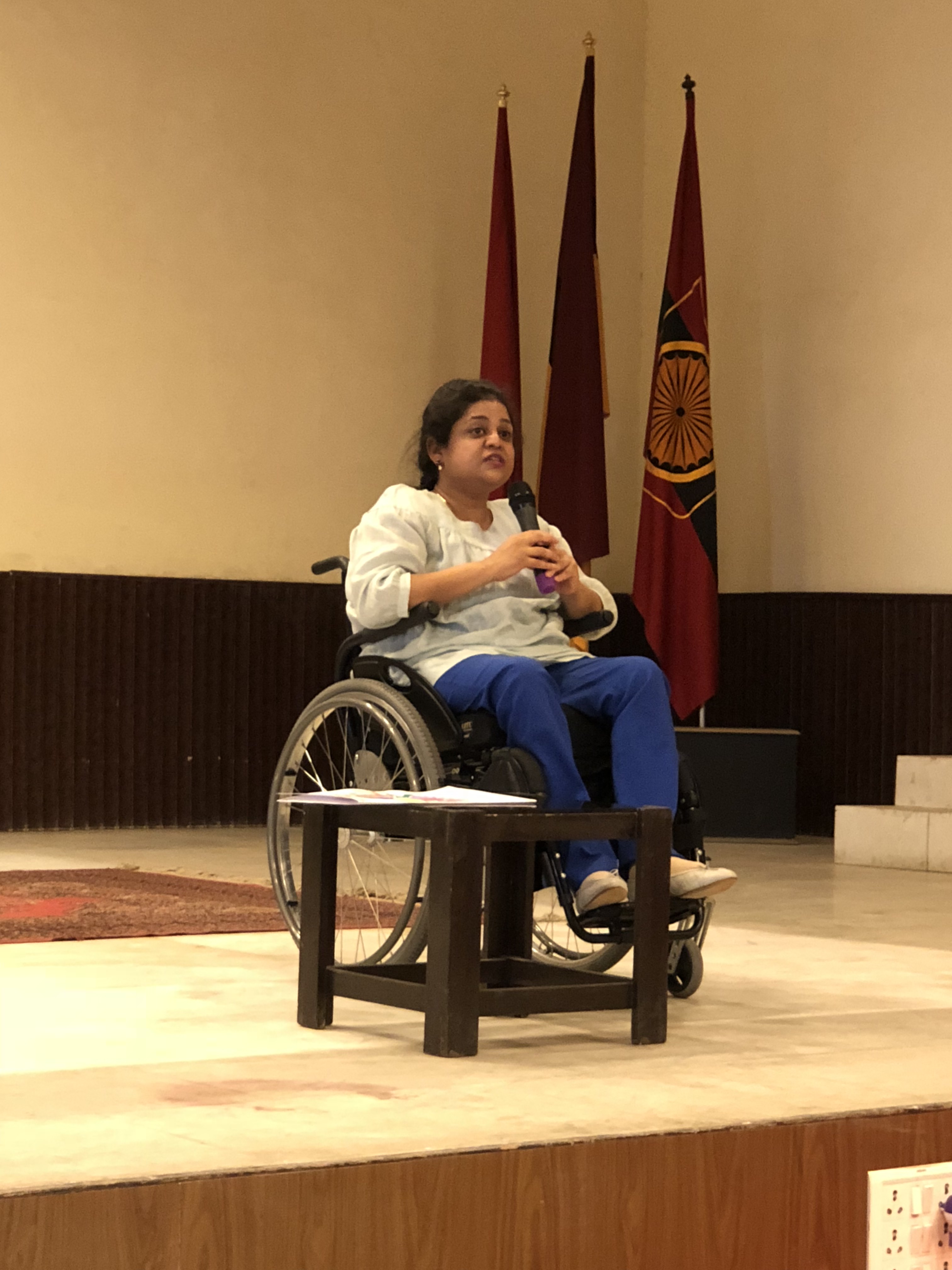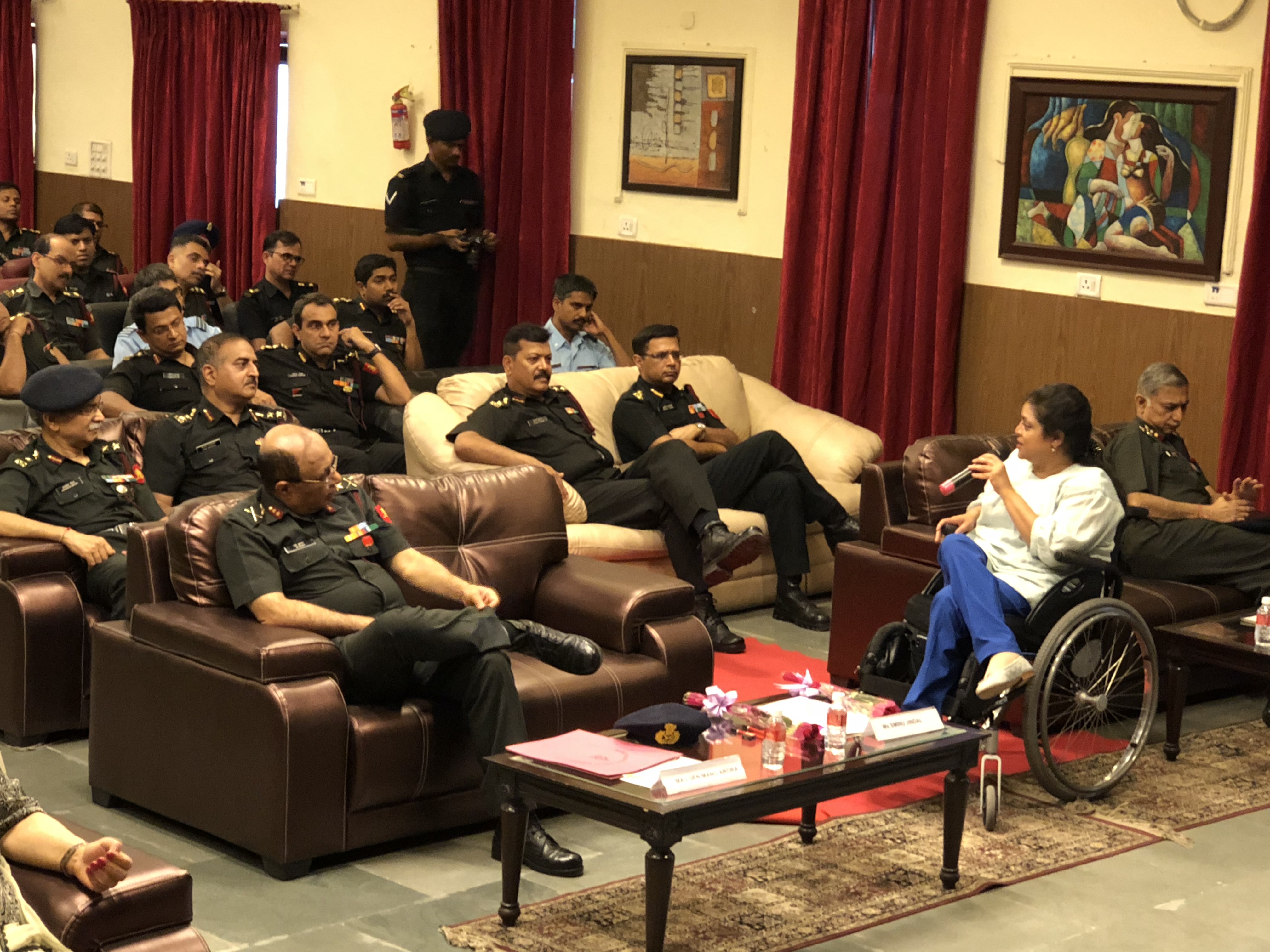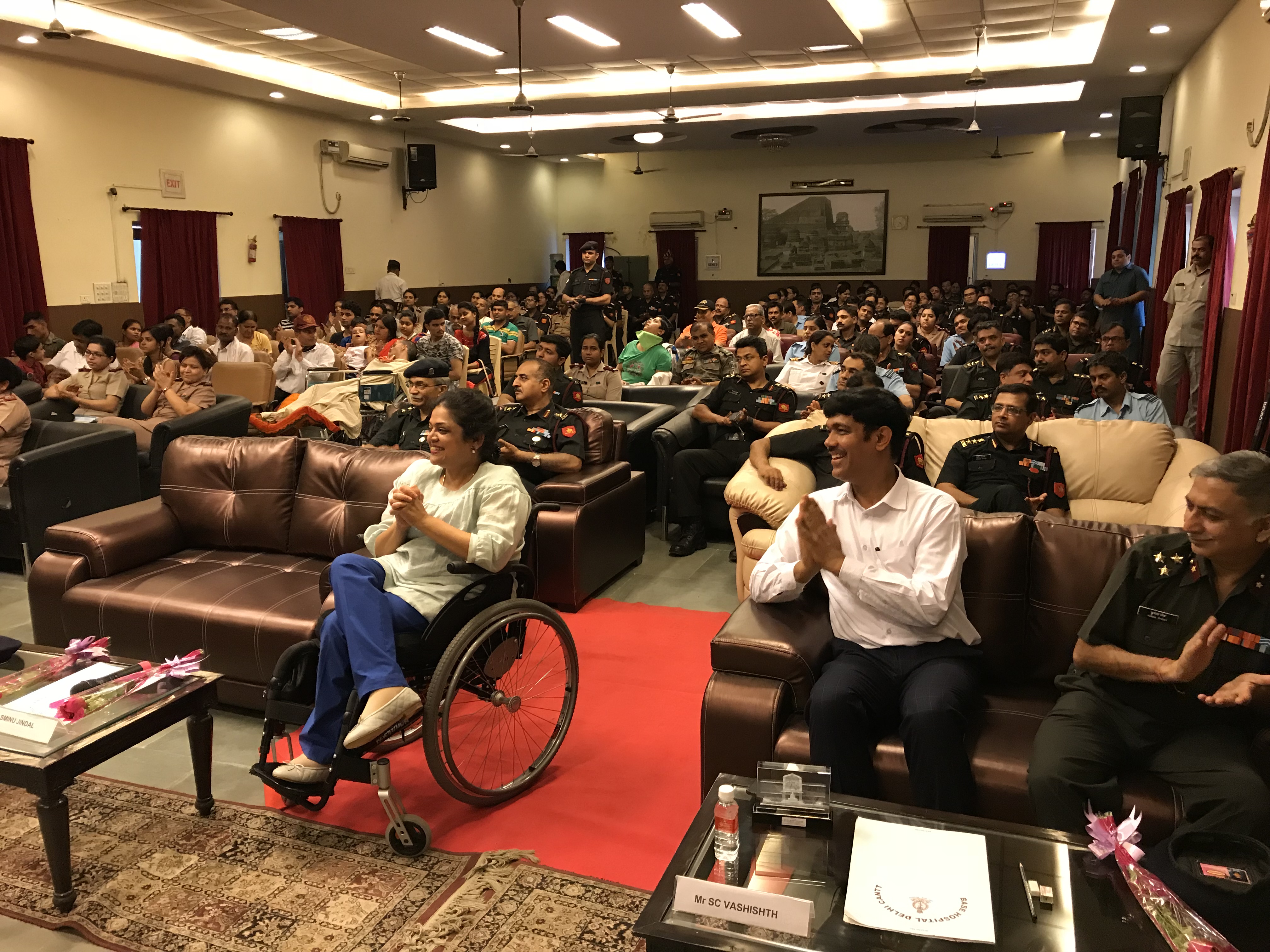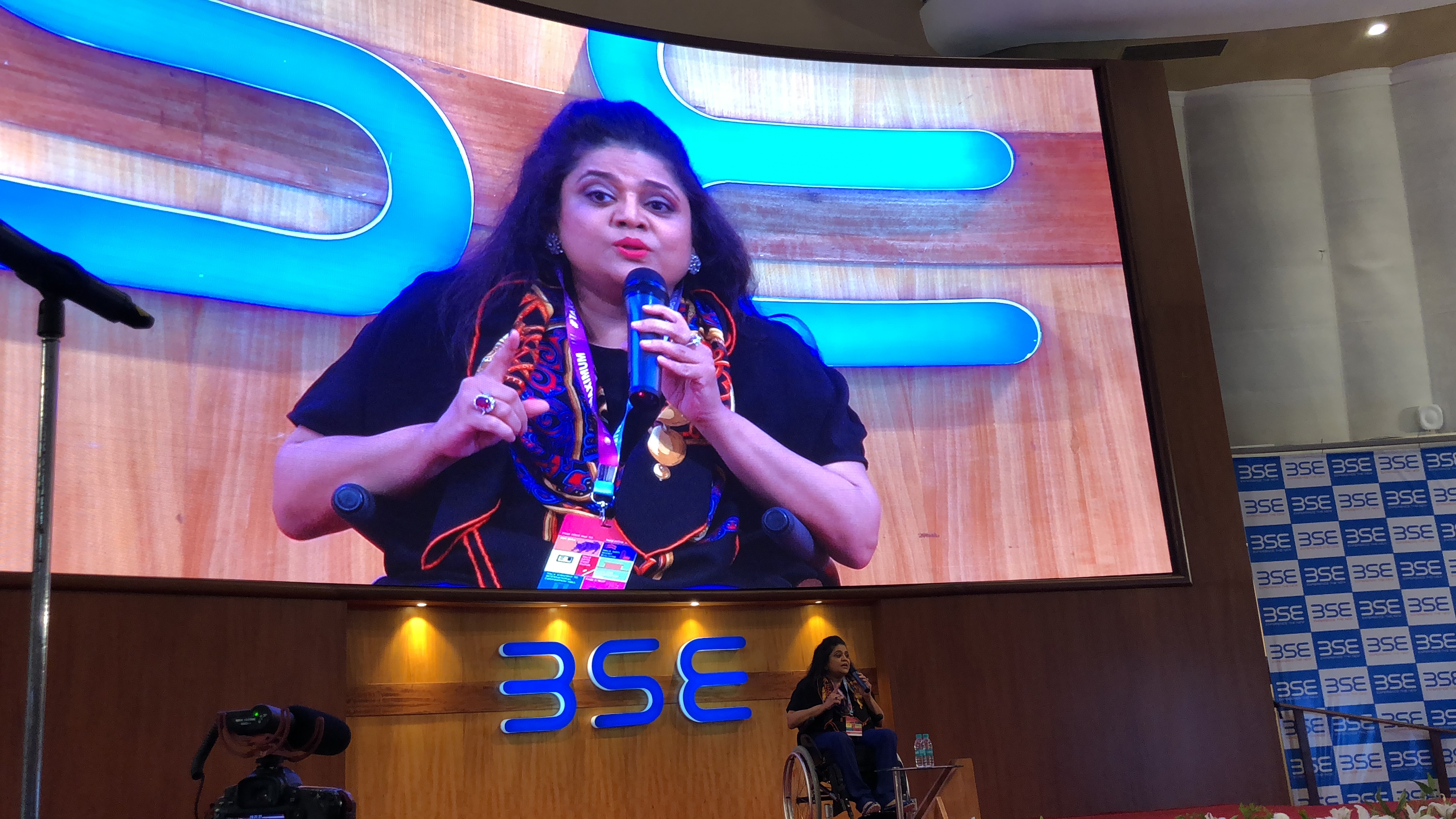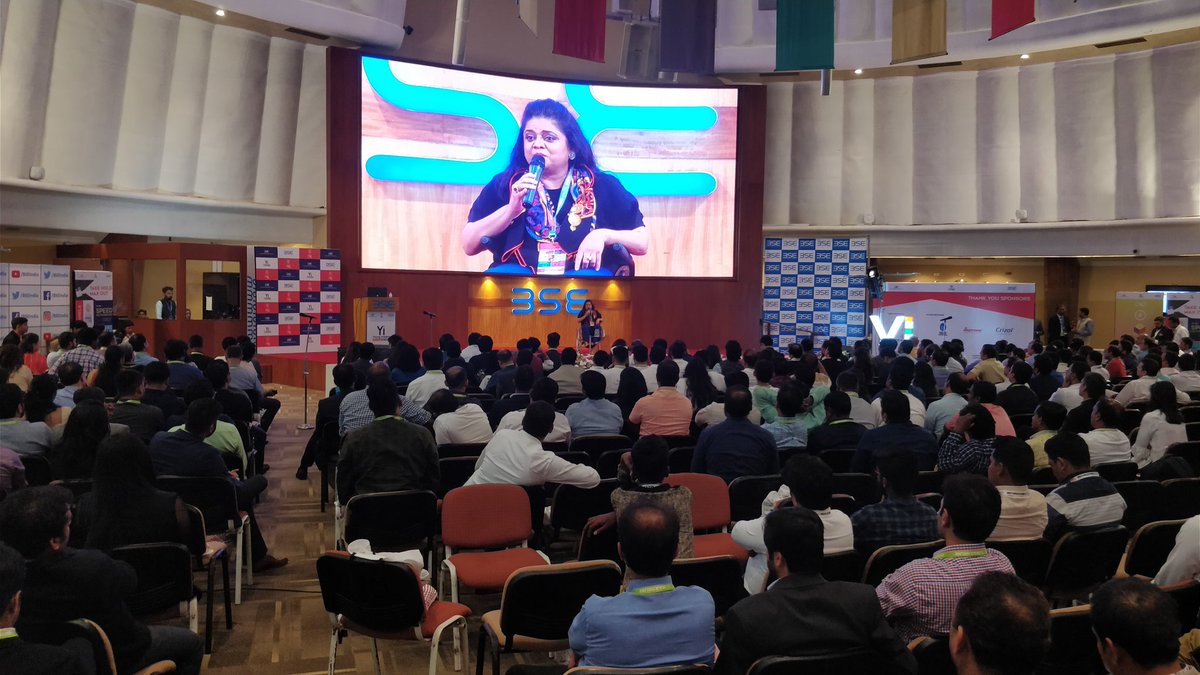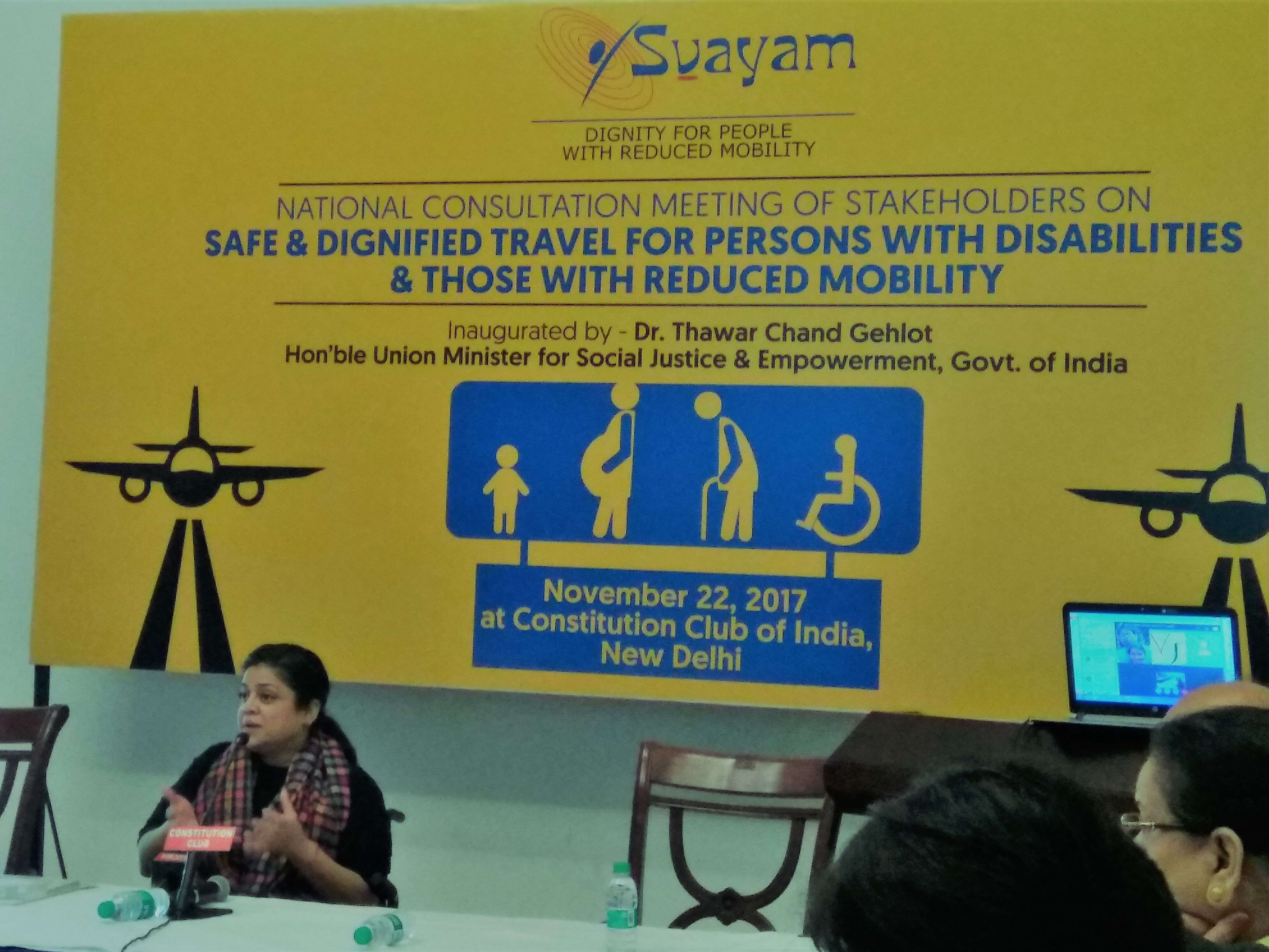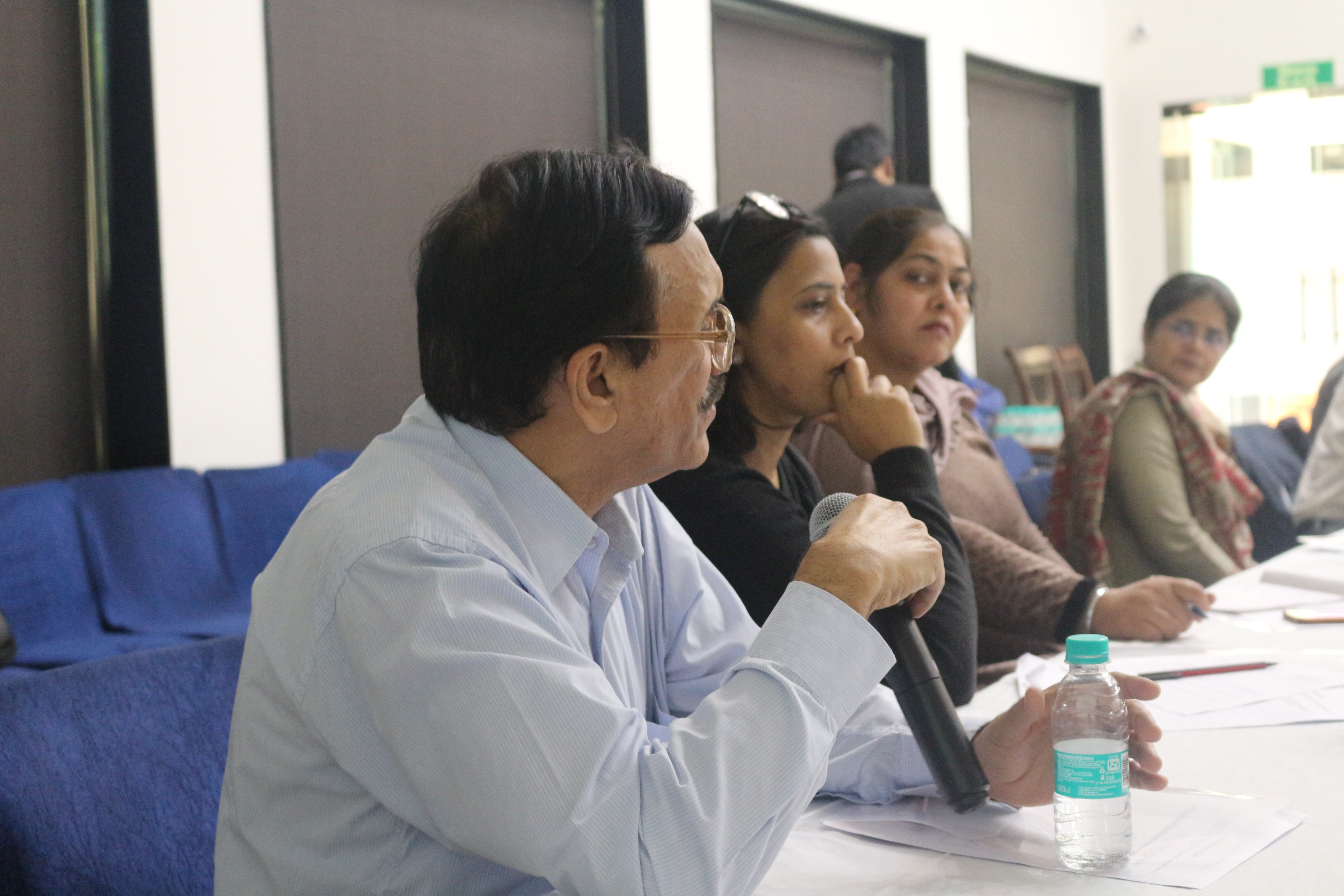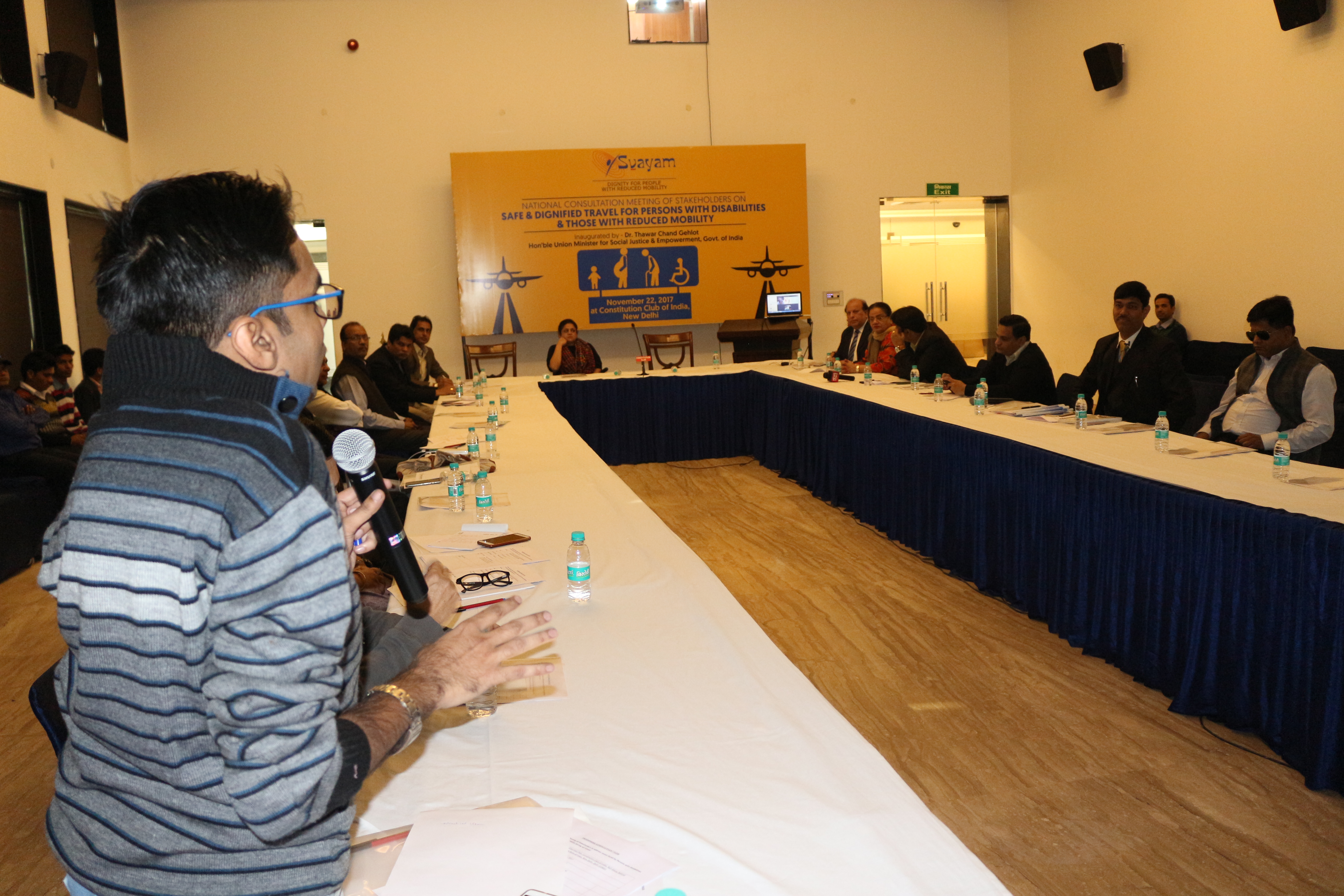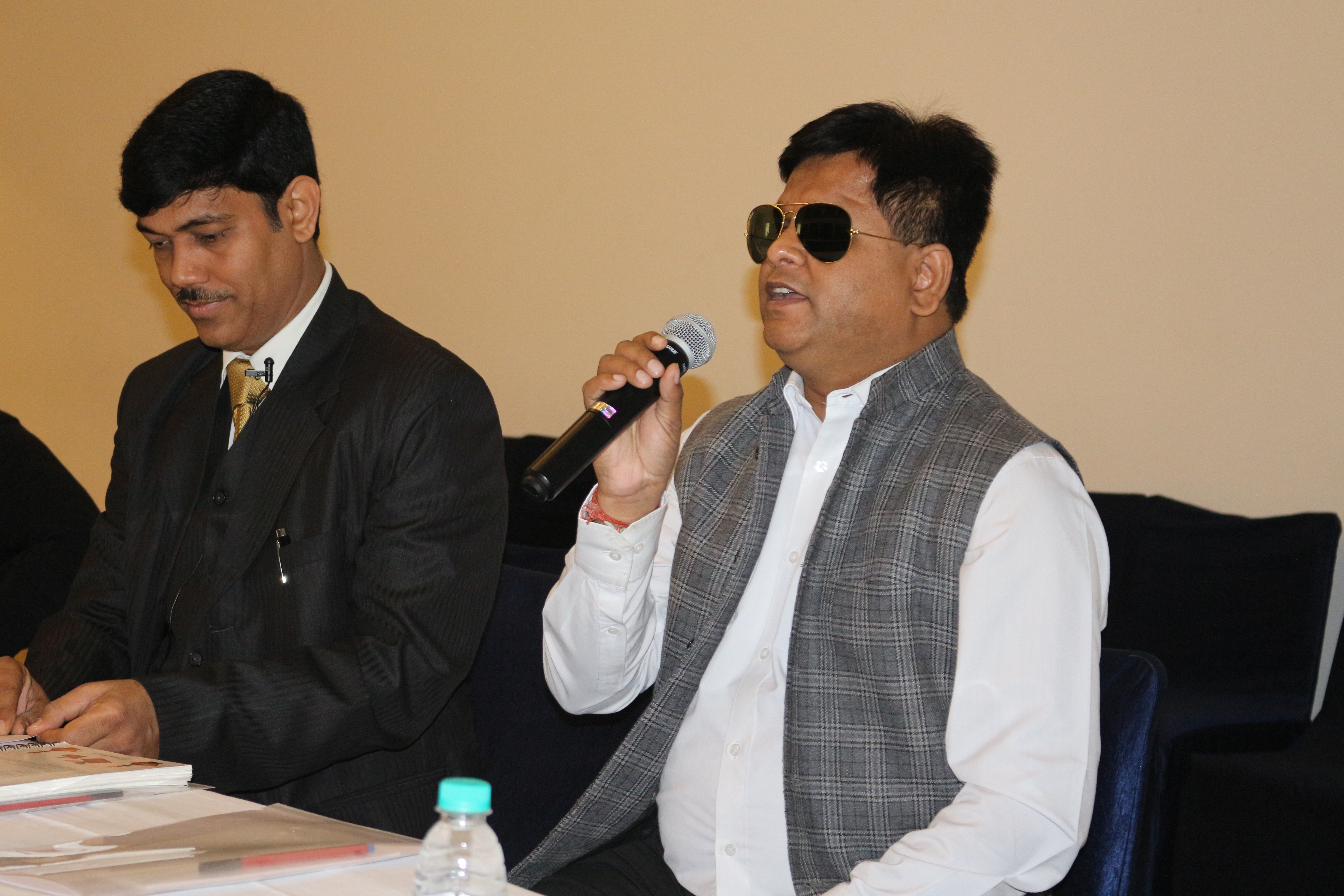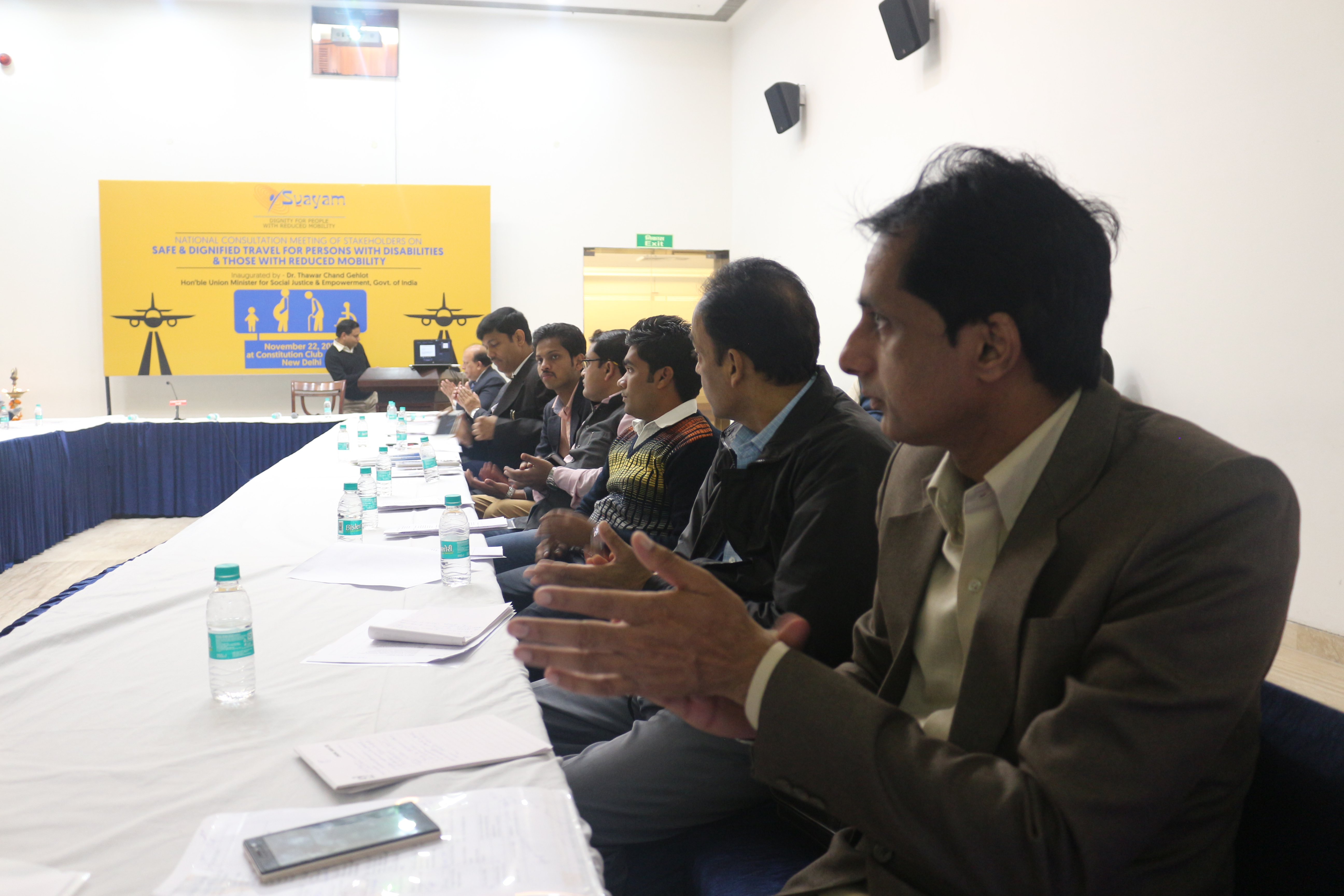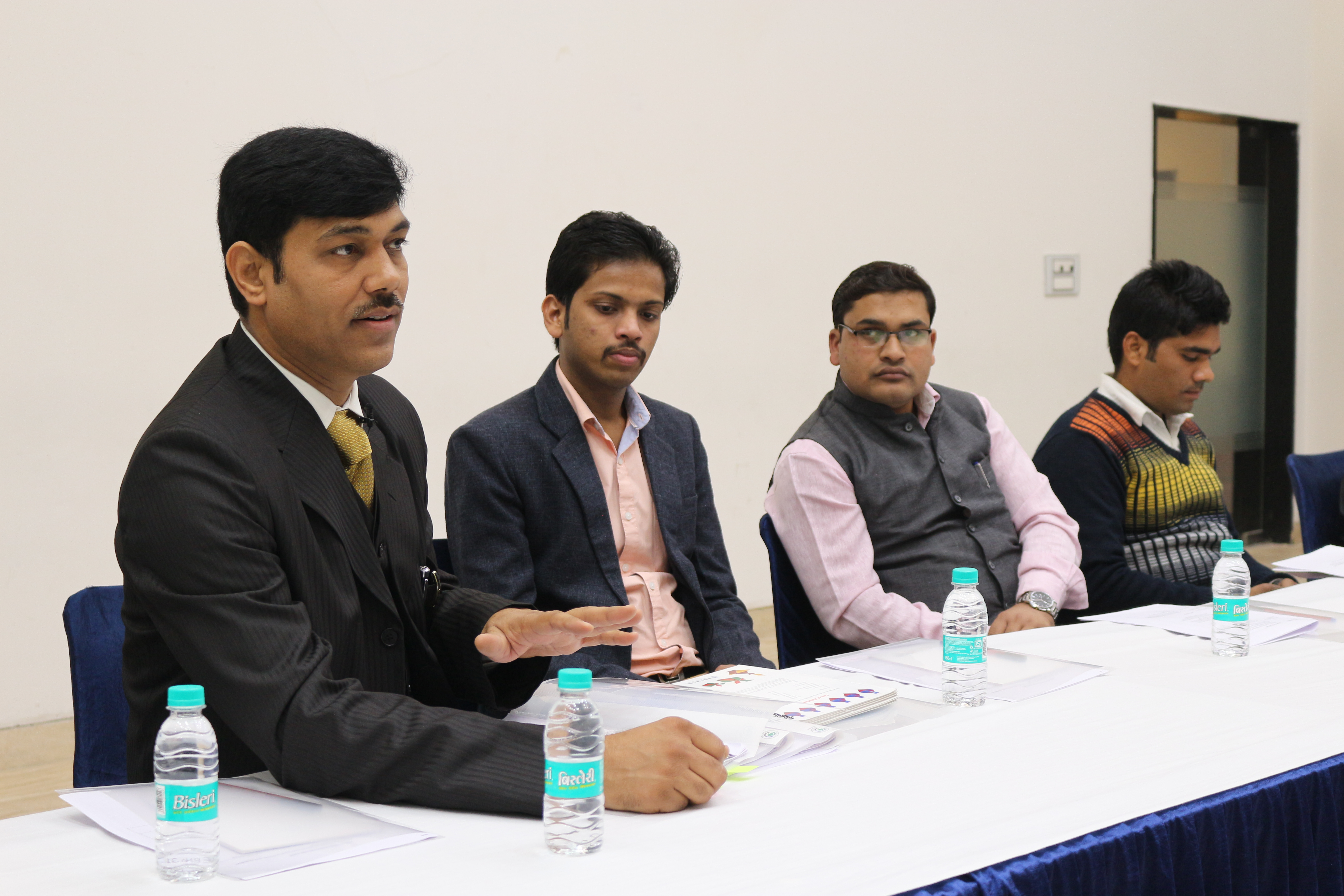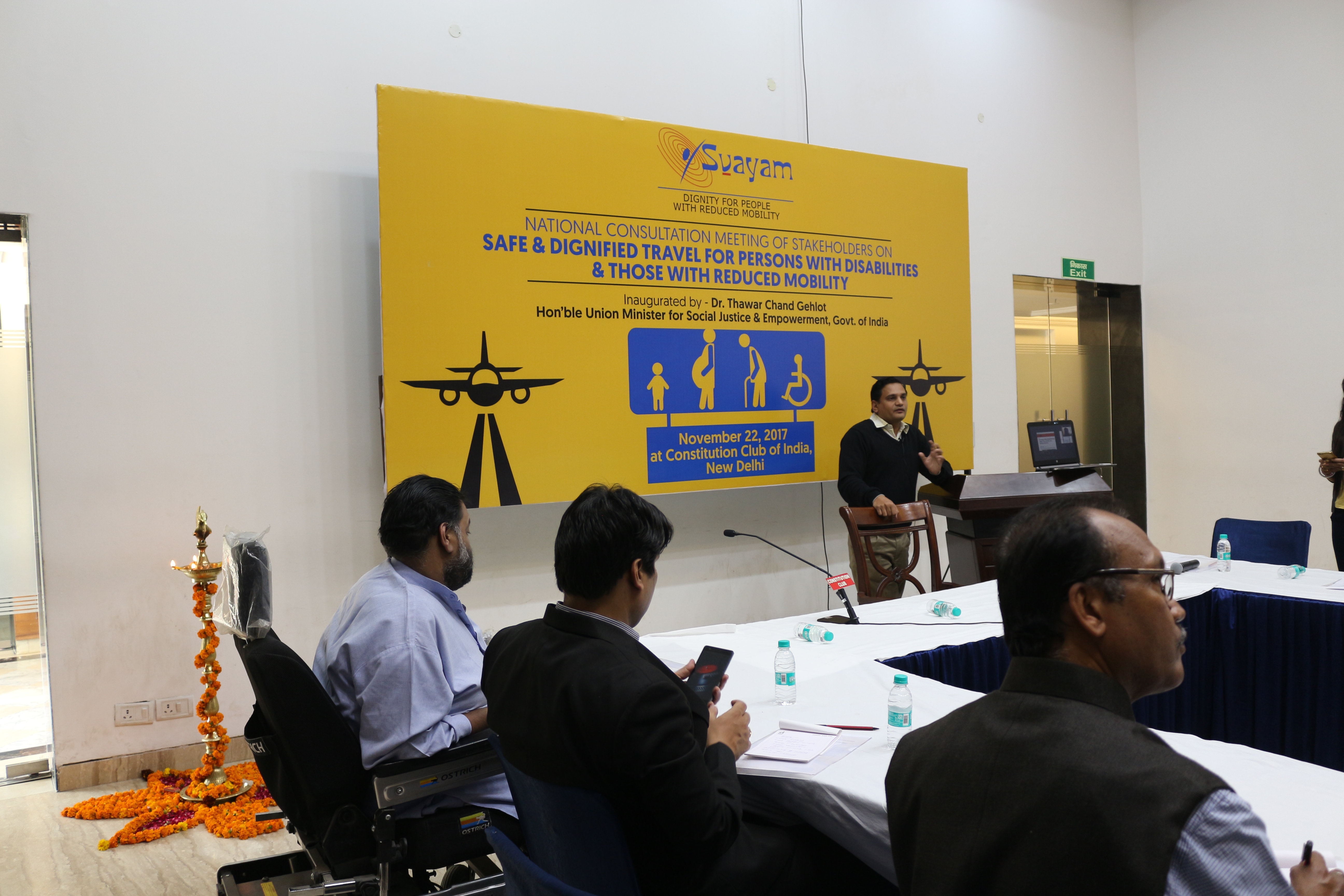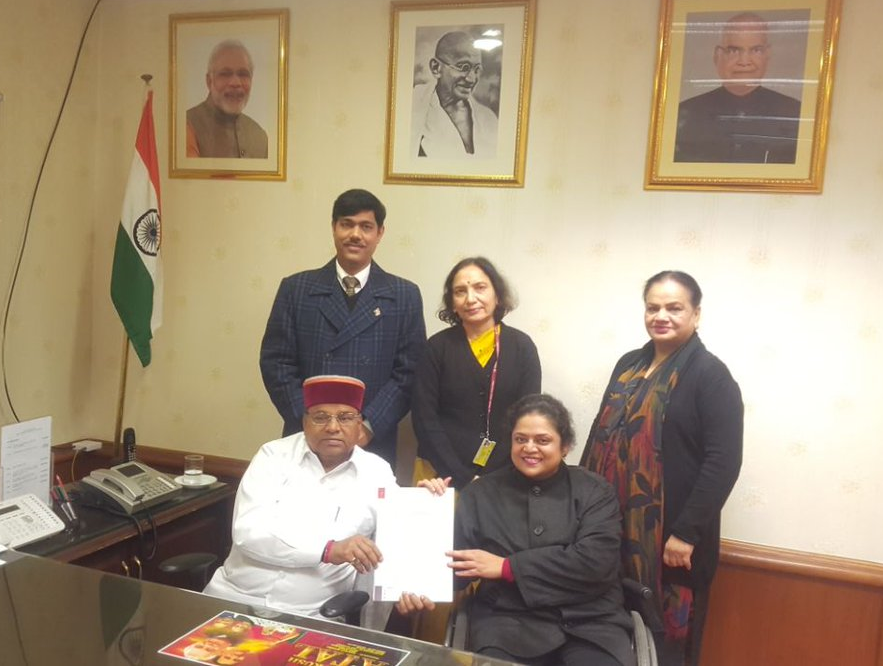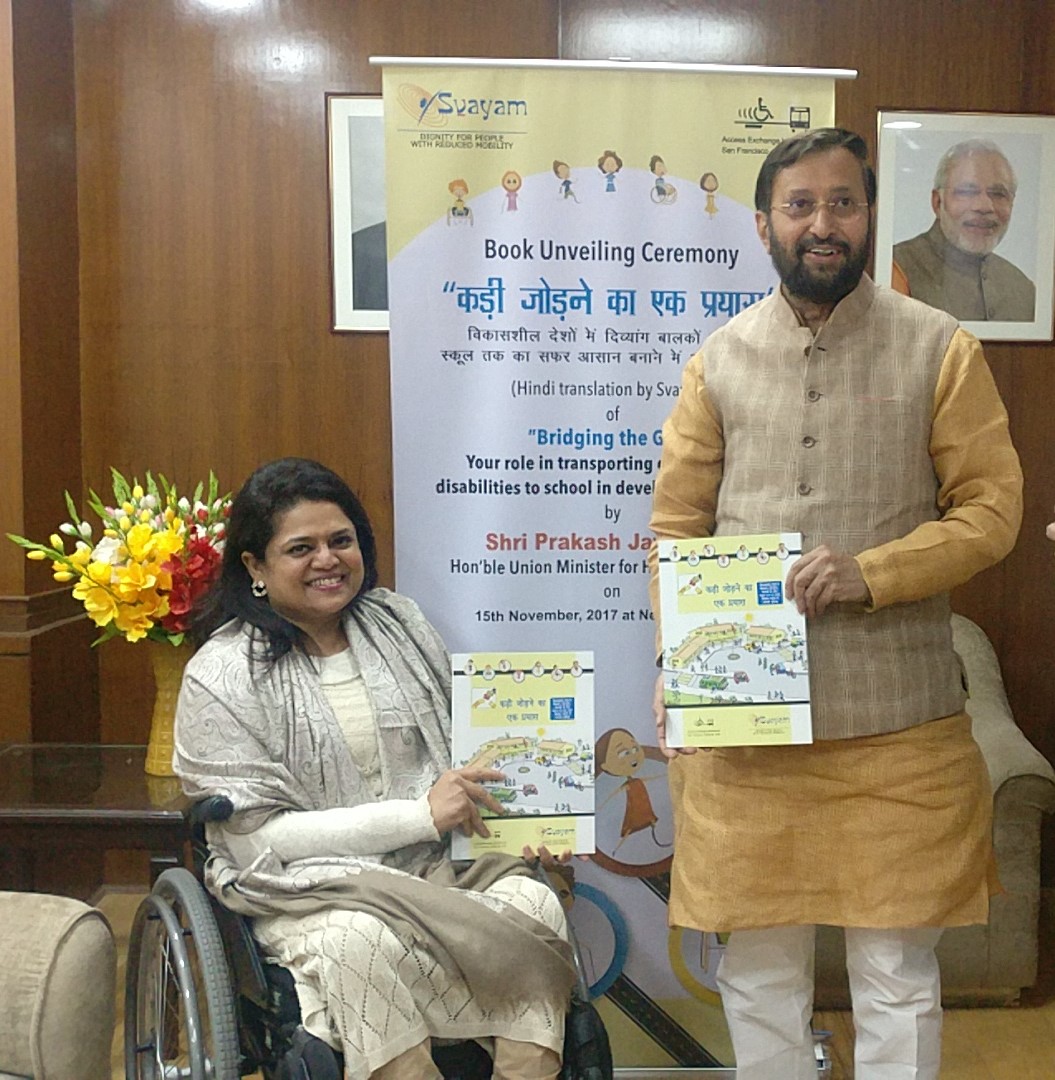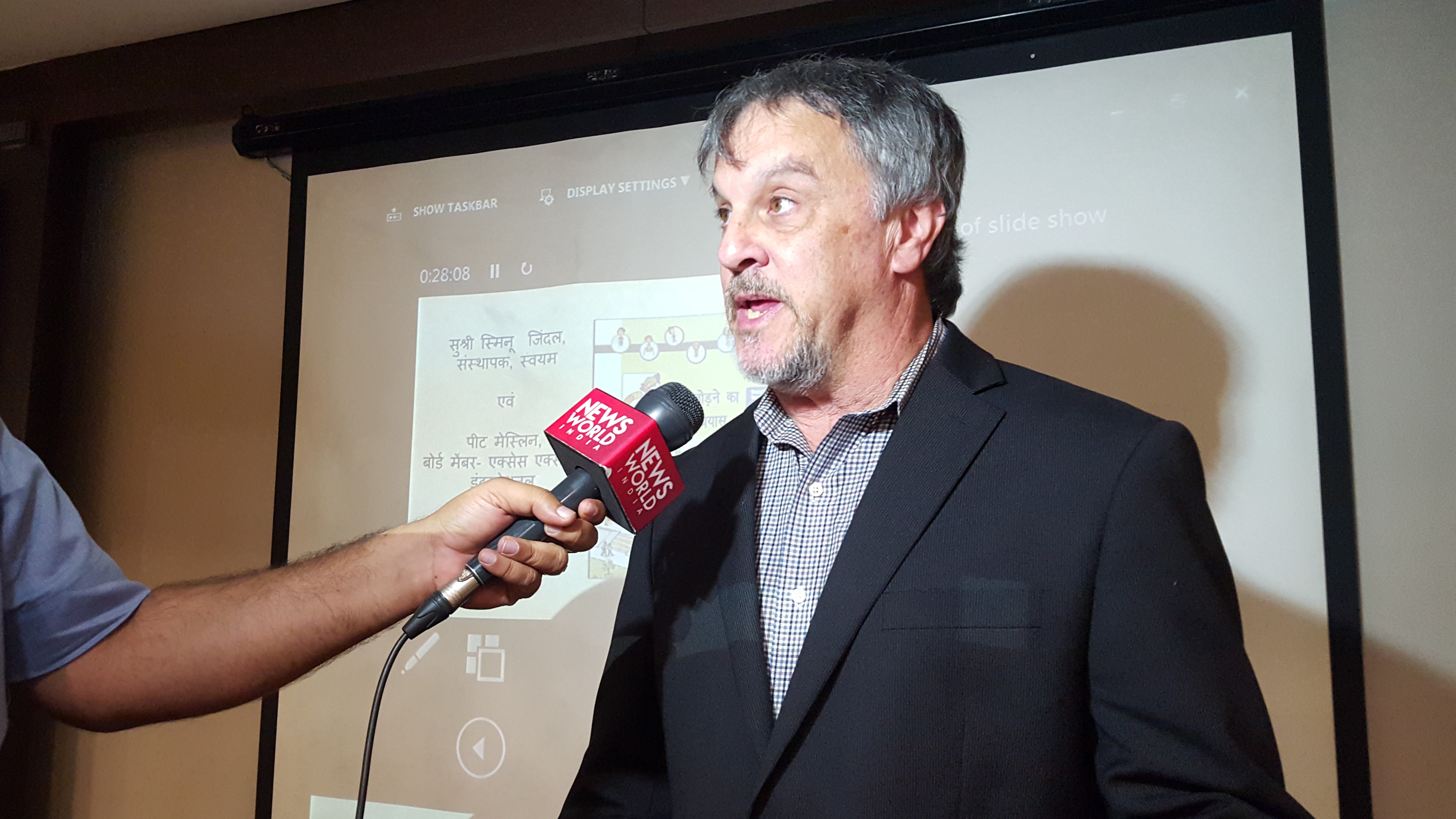We are happy to share that most of the suggestions made by Svayam on Consultation Paper on ‘Making ICT accessible for Persons with Disabilities’ have found place in the Full Recommendations released by TRAI on 09 July 2018.
July 09, 2018 | New Delhi
The Telecom Regulatory Authority of India (TRAI) had issued a Consultation Paper on ‘Making ICT Accessible for Persons with Disabilities’ dated 20 December 2017. Stakeholders were requested to send their comments by 22 January 2018, and counter comments by 05 February 2018.
Svayam, as a leading accessibility rights organization, was on the forefront in submitting its comments and recommendations, as well as counter comments.
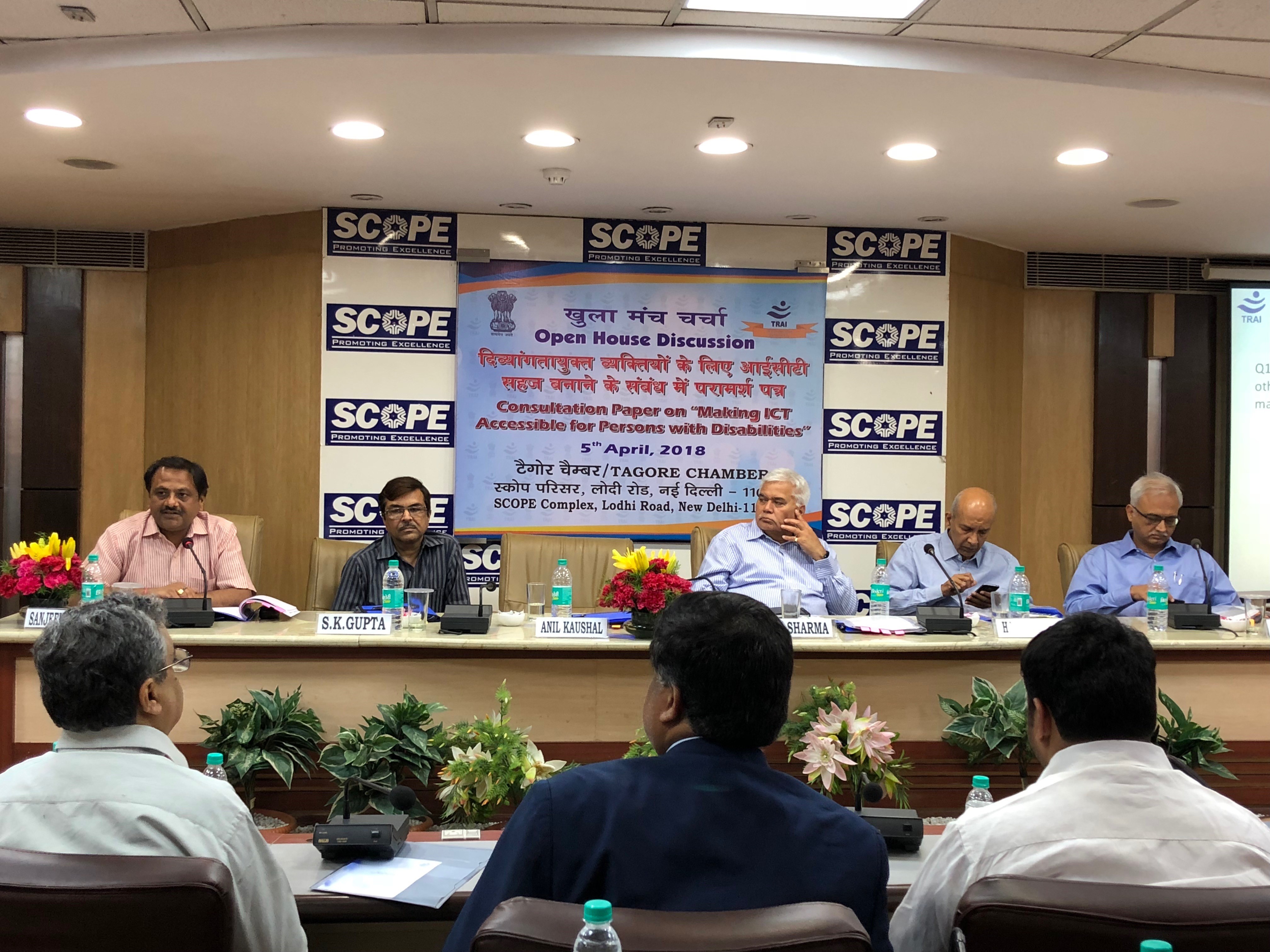
Later, TRAI held an open house discussion on 05th April 2018, where Svayam team participated and strengthened its case for accessible information and communication technologies (ICT), and why its recommendations should be considered for framing a policy for Inclusive ICT for all.
The Full Recommendations released by TRAI have been submitted to the Government of India for framing a National Policy.
Svayam’s Suggestions which became part of TRAI’s Recommendations:
Many ideas and comments submitted by Svayam have found place in TRAI’s recommendations; some of them are given below:
2.3: All 21 disabilities listed under the Right of Persons with Disabilities Act, 2016‘should be covered under any proposed framework. Cognitive disabilities, learning disabilities, locomotive disabilities, and degenerative diseases should also be incorporated into any proposed framework.
2.18: The Authority (TRAI) recommends that in order to ensure accessibility of ICT services to the PwDs a steering committee under aegis of Department of Empowerment of Persons with Disabilities should be formed.
2.19: Access to assistive technologies: In order to ensure barrier-free interaction with the digital world, it is essential that assistive technologies are free or available at a low cost through subsidies or grants. It is imperative to either make devices accessible or ensure that devices are compatible with third party assistive technologies. There is also a need for training of PwDs and those who assist them on the use of technologies and features made available.
Accessible services and interfaces: To ensure complete and equal participation in the digital world, PwDs require services and interfaces that ensure that content on television, Internet or in other electronic media is available in accessible formats – for instance, through the use of closed captions for users who are deaf or hard of hearing and audio description for users who are blind or visually impaired. There is also need to undertake awareness campaigns on the availability of accessible content.
Inaccessible customer services: PwDs face challenges accessing customer services offered by telecom service providers. Customer services need to be redesigned to addresses the specific needs of persons with disabilities.
2.29: In India, RPWD Act,2016 envisaged that there is need to take measures to ensure that all content available in audio, print and electronic media are in accessible format. So far as ICT accessibility is concerned the Authority is of the view that the telecom service providers need to provide telephone/DTH bills to the PWDs in accessible form based on their choice. For the persons with low vision, telephone/mobile bills can be provided in large font size, blind persons can opt to get the telephone bill in Braille script.
2.44: The Authority is of the view that every service provider (TSPs/MSO/DTH) should have dedicated customer support desk meant only for PwDs so that any call received from them should be directed/diverted to that desk.
2.45: Apart from having a dedicated desk it is also important to ensure that the customer support/service staff employed by TSPs and broadcasters are adequately trained to assist PwDs in accessing the services and devices designed for them.
2.46 (d): TSPs, MSOs/DTH and PSAP operators should ensure that the executives that deal with PwD customers have been given sensitivity training from time to time so as to understand and deal with the issue raised by PwDs.
2.51: The Authority recommends that DoT and MIB may instruct TSPs and DTH/MSOs to conduct frequent awareness campaigns regarding issues of accessibility, design, affordability and information pertaining to assistive products available to PwDs and the various government policies/schemes pertaining to accessible ICT that can be availed by PwDs.
2.52: The universal design principles should be adopted instead of developing a model specifically for PwDs.
2.54: The Authority is of the view that every mobile manufacturer who produces 5 or more different models of mobile handsets should provide at least one mobile handset satisfying the accessibility criteria for PwDs.
2.55: the Authority recommends every mobile manufacturer who produces 5 or more different models of mobile handsets should provide at least one mobile handset satisfying the accessibility criteria for PwDs as enumerated in the recommendations.
2.67: The Authority recommends that the Government should mandate all the government agencies that in procurement of ICT products viz Computer hardware, mobile phones, Set Top Boxes, it should be mandatory that these are accessible to PwDs.
2.90: Grips for improved stability (mobile phones)
Chapter-III – Summary of recommendations:
3:2: The Authority recommends that in order to ensure accessibility of ICT services to the PwDs a steering committee under aegis of Department of Empowerment of Persons with Disabilities should be formed.
3.2 (c): Formulate guidelines and suggest an implementation and monitoring mechanism so as to improve ICT accessibility for PwDs.
3.5 (b): TSPs, MSOs and DTH Operators should have a special desk in their Call Centres/Customer support centres where calls received from special category numbers are routed to this specialised desk which should be manned by person(s) to receive calls from PwDs using assistive technologies.
3.5 (d): TSPs, MSOs/DTH and PSAP operators should ensure that the executives that deal with PwD customers have been given sensitivity training from time to time so as to understand and deal with the issues raised by PwDs.
3.7: Every mobile manufacturer who produces 5 or more different models of mobile handsets should provide at least one mobile handset satisfying the accessibility criteria for PwDs as enumerated in the recommendations. This may be achieved by the end of 2020.
3.9: The Authority recommends that the Government should mandate all government agencies that in procurement of ICT products viz Computer hardware, mobile phones, Set Top Boxes, it should be mandatory that these are accessible to PwDs.
3.11 (d): Closed captioning control and display options.
3.12: The Authority recommends that broadcasting channels may be developed in accessible format too for PwDs with audio & visual impairment.
We hope that recommendations submitted by TRAI would soon be accepted by the Department of Telecommunications (DoT) Govt. of India for framing a national policy which is crucial for standardization of Inclusive ICT Norms. It will help include a large segment of persons with disabilities in the mainstream., which as per the World Bank Report (2007) titled ‘People with Disabilities in India: from Commitments to Outcomes’, comprise between 4 and 8 percent of the Indian population.
Also, the population of senior citizens is about 10-12 % of the total population which is expected to grow more than 2.8 per cent and make up one-fifth of the total population by 2025-2030. (Report by WHO). Accessibility of Information and Communication Technology (ICT) can play a great role in not only improving the quality of life but also tapping the potentials of such a huge number of India’s citizenry.
For achieving a truly inclusive information society, persons with disabilities must be able to use information and communication technologies (ICTs) with equal ease. This can be made possible only if the accessibility of ICTs is on the top of the agenda of manufacturers and service providers. Though, it makes business sense to attract persons with disabilities with ICTs having accessibility features, manufacturers failed to tap this opportunity. Hence, a stringent policy is required to ensure persons with disabilities get what they need. A comprehensive plan is needed to adopt accessible operating system for product development and service divisions to include everyone.
Downloads Available
(a) Full Recommendations by TRAI to the DoT, 09 July 2018
(b) Svayam’s Comments submitted to TRAI, Jan 2018

